File Info
| Exam | C++ Certified Associate Programmer |
| Number | CPA |
| File Name | C++ Institute.CPA.ActualTests.2019-03-15.132q.vcex |
| Size | 117 KB |
| Posted | Mar 15, 2019 |
| Download | C++ Institute.CPA.ActualTests.2019-03-15.132q.vcex |
How to open VCEX & EXAM Files?
Files with VCEX & EXAM extensions can be opened by ProfExam Simulator.
Coupon: MASTEREXAM
With discount: 20%
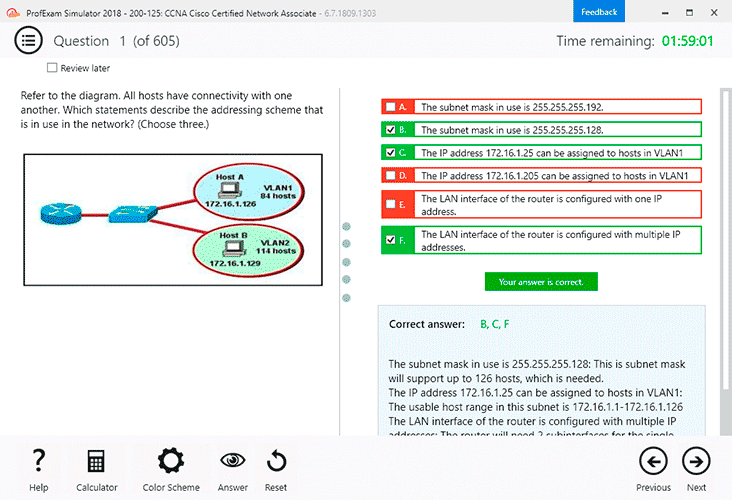
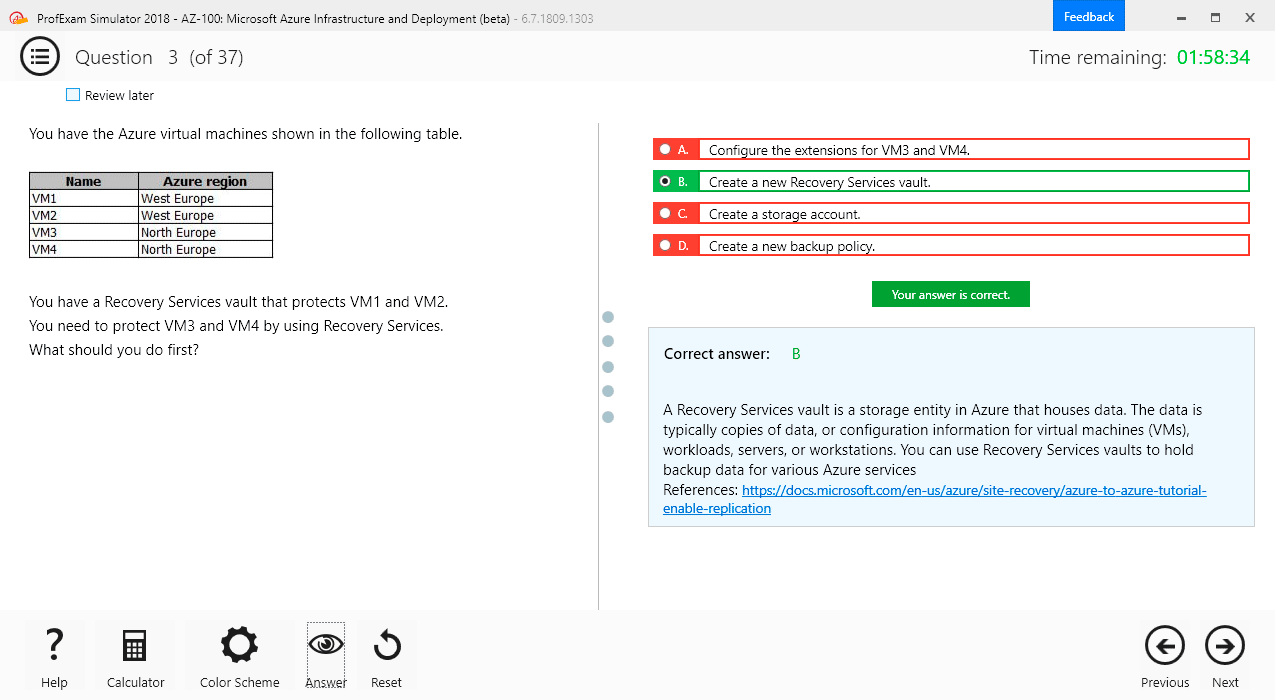
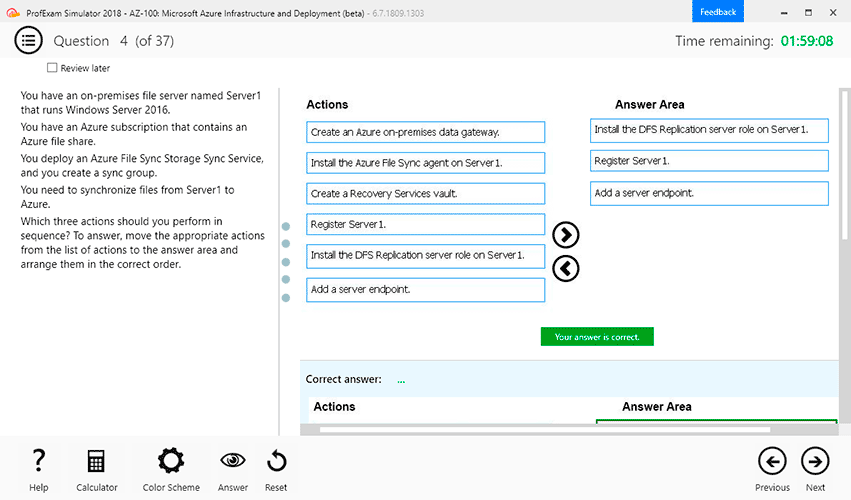
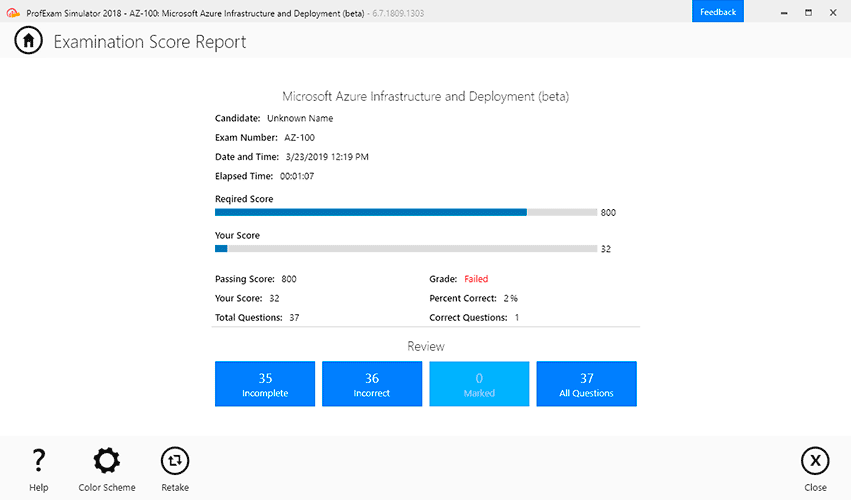
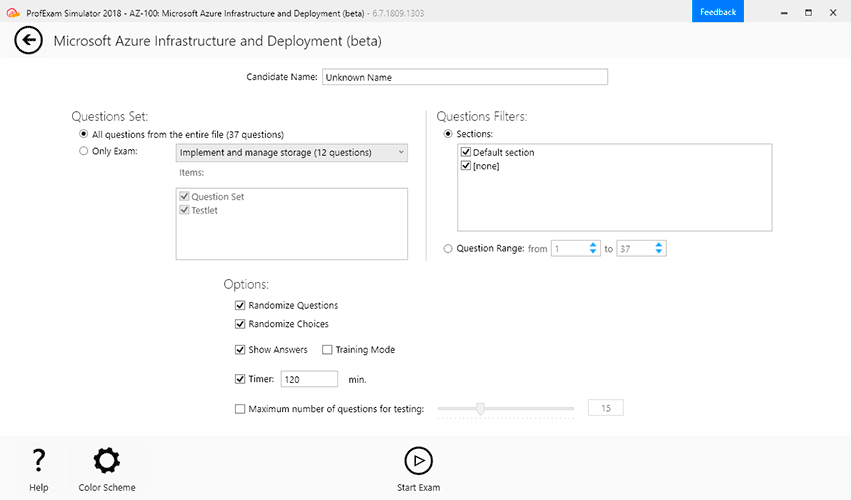
Demo Questions
Question 1
What will the variable "age" be in class B?
class A {
int x;
protected:
int y;
public:
int age;
A () { age=5; };
};
class B : public A {
string name;
public:
B () { name="Bob"; };
void Print() {
cout << name << age;
}
};
- public
- private
- protected
- None of these
Correct answer: A
Question 2
What happens when you attempt to compile and run the following code?
#include <iostream>
#include <string>
using namespace std;
class complex{
double re, im;
public:
complex() : re(1),im(0.4)
complex operator(complex &t);
void Print() { cout << re << " " << im; }
}
complex complex::operator (complex &t){
complex temp;
temp.re = this>re t.re;
temp.im = this>im t.im;
return temp;
}
int main(){
complex c1,c2,c3;
c3 = c1 c2;
c3.Print();
}
- It prints: 1 0.4
- It prints: 2 0.8
- It prints: 0 0
- It prints: 1 0.8
Correct answer: C
Question 3
What happens when you attempt to compile and run the following code?
#include <iostream>
using namespace std;
class complex{
double re;
double im;
public:
complex() : re(0),im(0)
complex(double x) { re=x,im=x;};
complex(double x,double y) { re=x,im=y;}
void print() { cout << re << " " << im;}
};
int main(){
complex c1;
c1 = 3.0;
c1.print();
return 0;
}
- It prints: 0 0
- It prints: 1 1
- It prints: 3 3
- Compilation error
Correct answer: C
Question 4
What happens when you attempt to compile and run the following code?
#include <iostream>
using namespace std;
void fun(int);
int main()
{
int a=0;
fun(a);
return 0;
}
void fun(int n)
{
if(n < 2)
{
fun(++n);
cout << n;
}
}
- It prints: 21
- It prints: 012
- It prints: 0
- None of these
Correct answer: A
Question 5
What happens when you attempt to compile and run the following code?
#include <iostream>
using namespace std;
int s(int n);
int main()
{
int a;
a = 3;
cout << s(a);
return 0;
}
int s(int n)
{
if(n == 0) return 1;
return s(n?1)*n;
}
- It prints: 4
- It prints: 6
- It prints: 3
- It prints: 0
Correct answer: B
Question 6
What happens when you attempt to compile and run the following code?
#include <iostream>
using namespace std;
#define FUN(arg) if(arg) cout<<"Test";
int main()
{
int i=1;
FUN(i<3);
return 0;
}
- It prints: 0
- It prints: T
- It prints: T0
- It prints: Test
Correct answer: D
Question 7
What happens when you attempt to compile and run the following code?
#include <iostream>
using namespace std;
int main()
{
float x=3.5,y=1.6;
int i,j=2;
i = x + j + y;
cout << i;
return 0;
}
- It prints: 7
- It prints: 6
- It prints: 7,1
- Compilation error
Correct answer: A
Question 8
What happens when you attempt to compile and run the following code?
#include <iostream>
using namespace std;
int main(){
int i = 1;
if (i==1) {
cout << i;
} else {
cout << i-1;
}
return 0;
}
- It prints: 0
- It prints: 1
- It prints: -1
- It prints: 2
Correct answer: B
Question 9
What is the output of the program?
#include <iostream>
using namespace std;
int main()
{
int tab[4]={10,20,30,40};
tab[1]=10;
int *p;
p=&tab[0];
cout<<*p;
return 0;
}
- It prints: 10
- It prints: 20
- It prints: 11
- It prints: 30
Correct answer: A
Question 10
What happens when you attempt to compile and run the following code?
#include <iostream>
using namespace std;
class A {
public:
virtual void Print()=0;
};
class B:public A {
public:
virtual void Print() { cout<< "B"; }
};
class C:public A {
public:
virtual void Print() { cout<< "C"; }
};
int main()
{
B ob2;
C ob3;
A *obj;
obj = &ob2;
obj>Print();
obj = &ob3;
obj>Print();
}
- It prints: BC
- It prints: CB
- It prints: CC
- It prints: BB
Correct answer: A

